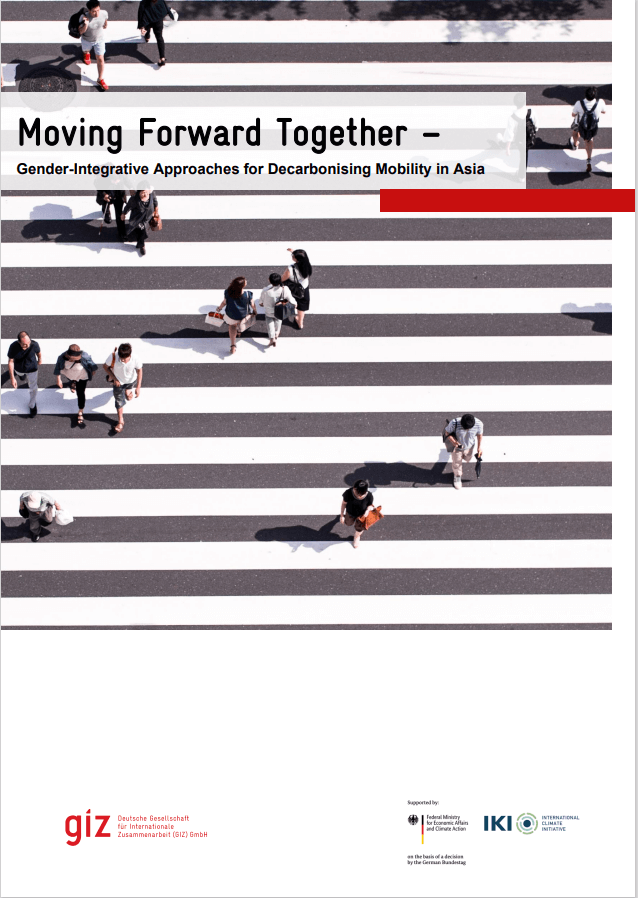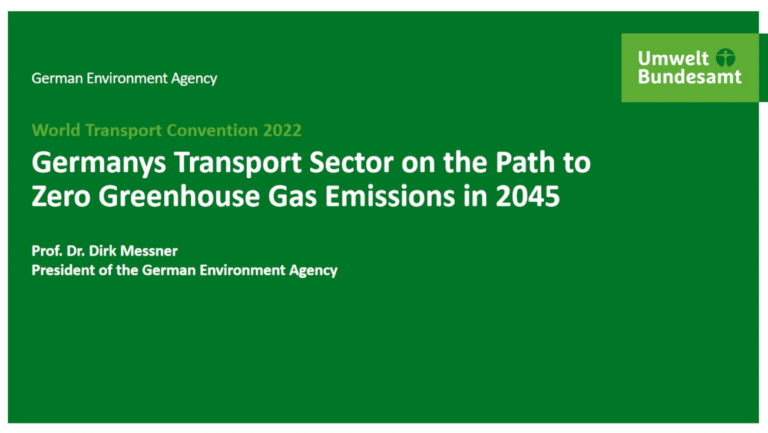In the coming years, China will continue to experience a significant growth in its transport sector. Today already 120 million private vehicles are driving on Chinese roads. 35.000 are added on a daily basis. From 2000 to 2013 the freight volume increased from 13.6 to 45 billion tons. Already in 2011 the transport sector in China was responsible for 628 million tons of CO2. A figure that is almost four times higher than Germany’s total greenhouse gas emissions. Unlike most industrialised countries with high motorisation rates, China’s transport related emissions only amount to eight per cent of its overall GHG emissions. This does not only indicate a strong potential for growth but also highlights the global relevance of the Chinese transport sector.
The continued growth of a fossil fuels intensive transport sector amplifies challenges in energy security, greenhouse gas emissions and health-affecting pollution. Although fossil fuels dominate the Chinese transport sector, innovation in propulsion technology does not stand still. In view of the rapidly evolving alternative drive systems and climate-friendly fuels, the interdependencies between the transport and energy sector will grow considerably. A shift from the established gasoline-vehicle relationship to a diversified fuel and drive system is required to tackle the growing challenges. Consequently, a holistic, systematic approach to transform the Chinese transport sector and fuels infrastructure is needed.
Sino-German dialogue on the development of a Mobility and Fuel Strategy for China
A Sino-German dialogue addresses this issue by exploring opportunities for a Strategy in China drawing upon the already established German Mobility and Fuels Strategy (MFS). The new cooperation is the first project GIZ is implementing on behalf of the German Federal Ministry for Transport and Digital Infrastructure (BMVI).
Although Germany’s transport sector is growing less dynamic, the challenge of reducing dependency from fossil-based fuels is equally challenging. Diversified fuels and drive technologies create new interdependencies between the energy and transport sector that is addressed in the MFS. The MFS was drafted under the auspices of the BMVI and is an initial, concrete contribution to achieving the targets set out in the German government’s Energy Concept for the transport sector. It provides a comprehensive overview of the technologies and of the energy and fuel options for various modes of transport. In addition, it seeks to broaden the knowledge base on issues of energy and technology in the transport sector, to analyse the framework conditions and to prioritise targets. Ultimately, its purpose – as a “learning strategy” – is to identify ways in which the German Energy Transition “Energiewende” can be implemented in the transport sector in the future.
The role of a Mobility and Fuels Strategy
A MFS is an instrument that outlines the required changes within the transport sector to contribute effectively to the energy transition while ensuring affordable individual mobility by
- analysing the framework conditions, developing forecasts and scenarios and illustrating the energy infrastructures needed for the transformation of the transport sector;
- providing information and orientation on the current status, opportunities and challenges of alternative drive technologies and fuels,
- providing a comprehensive overview of the available technologies and options for energy and fuel for various modes of transport and hence broadening the knowledge base on issues of energy and technology in the transport sector;
- and finally by prioritizing targets and providing recommendations for action and identifying ways in which the energy transition can be implemented for transport in the future.
International cooperation crucial for a national strategy development
One main conclusion of the German MFS is that its success does not just depend on national transport demand and technological developments but also on international trends in energy and transportation. For example, the market development and the commercial viability of electro mobility highly depend on both the technological development and the prospects for travel demand in the larger economies including China and Germany.
The German government through the BMVI aims at providing support to the Chinese government in exploring options for a Chinese Mobility and Fuel Strategy by drawing upon the expertise and knowledge acquired in the development of the German MFS. The dialogue will include intensive technical exchange between German and Chinese experts, the translation of the German MFS into Chinese, analysis of existing models and scenarios in respect to drive systems and fuels and the drafting of a roadmap to an MFS in China.
Contact: Mr. Bai Yunfeng (Yunfeng.bai@giz.de) or Mr. Frederik Strompen (Frederik.strompen@giz.de) for more information





